Delicious: An Interview with Wes Stephenson
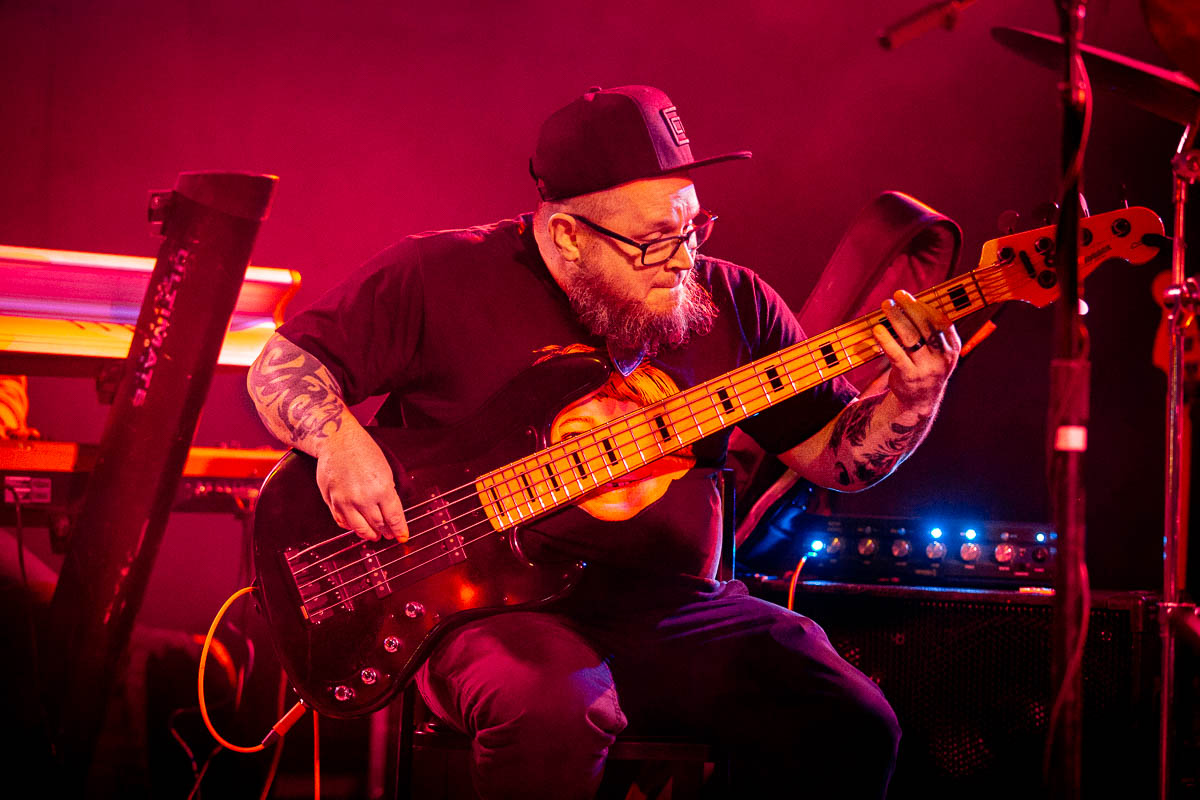
The Funky Knuckles have returned with their fourth album, Delicious, and as the title suggests, it’s a tasty treat for your ears. Based in Dallas, the band has been synthesizing the sounds of their hometown and beyond into a unique genre-blending signature sound. At the heart of their music is thrilling improvisation and sonic exploration. That spirit is driven in part by bassist and co-founder Wes Stephenson.
Stephenson’s journey to this point has had several twists and turns, starting with a life-altering hang out with a friend. Starting with harder influences, he eventually cut his teeth in the rich blues and jazz scene in Dallas. It was there he was given the space to find his own musical voice. Several inspiring musicians spurred his growth, leading him to form the Funky Knuckles with drummer Cedric Moore and keyboardist Caleb McCampbell. The group has since grown into a sextet that has a standing residency at Three Links in Deep Ellum, Texas.
We caught up with Stephenson to find out about his musical background, Delicious, and his thoughts on tone. Delicious is available on CD or for download via iTunes, Amazon MP3, and Bandcamp.
When did you pick up the bass?
I was thirteen or fourteen. I was kind of a troublemaker in school but when I went from junior high to high school, I had it in my mind that I was going to try to do better. I was going to play football, and we were doing two-a-day practices gearing up for going into 9th grade. One day, I was hanging out with a buddy of mine and we went to this guy’s house. This guy was always talking about how his buddy played bass and how cold-blooded he was: he learned the Red Hot Chili Peppers and Primus and all this stuff. We went to that guy’s house and he played the Chili Peppers version of “Higher Ground,” and that was just the most cold-blooded thing I’d ever heard in my life. When I left that meeting with him to go home and get ready for the second round of the two-a-days, I got hit by a car in a really bad accident. That made it impossible for me to play football.
In hindsight, I went down this path of pretty deviant behavior, but I hung out more with the art kids or the people that were into culture and music. It stuck with me that I wanted to play bass. I eventually got one because of that day. I never forgot listening to that guy play, and the rest is history.
What was your early musical career like?
Les Claypool was the only bass player to me for the first probably five years I played bass. I learned every song, every riff, every lick on every album up through Pork Soda. This was also the time where hip hop was coming into rock and roll with Korn and Limp Bizkit and all that. I was in a band that had a singer that was into hip hop, a drummer was into Tool, a guitarist was into metal and funk, and I was just into slapping and popping. It was really fast, distorted music, but it wasn’t like metal. I don’t know what it was, but we called it “munk,” because it was metal and funk. That’s another one of those finer points that my friend Mark Lettieri uses to make fun of me all the time. [laughs]
I know you’re born and raised in Dallas, which has such a rich musical scene. What was it like then, and were you interacting with it?
When I first started, it was hard for us because our circle was a bunch of hardcore metal people. I was immersed in that scene but as a young kid. I wasn’t even respected or anything like that. I didn’t know much about the really great circles of musicians and creative art music at that time, but I was only 16 or 17.
I dropped out of high school. None of my family went to college, but I had a great aunt that was a music teacher. She asked what I was doing, and I told her I was working and trying to make it in a band. She said, “You know you can go to college to study music.” When I found that out, I said, “I’m gonna get my junk together and go to college.”
At that point, I was super serious about music. Whether I made it or not, I was going to do something with music. So I went back to high school and graduated. I went to junior college and then to the University of North Texas for a year, but by that point, I got a road gig.
It was when I was going back to high school and getting ready for college that I started taking lessons with this bass player named Richard Thomas. He was in the blues and jazz scene, and in Dallas, there was a lot of crossover with that at the time. My teacher did a blues jam, and I went every week, which is when I started to meet a lot of other people and gigging.
Do you feel that consistency of showing up every week had a big impact on how you grew as a player?
Yeah, man. I love the blues now, but at that point, I was more into improvisational music and exploration. [The jam] was a bunch of older dudes that were super cool. I was only 19 and wasn’t even supposed to be in the club, but they would basically let me come in there and let me do whatever the heck I wanted to do.
I remember when I first started learning about altered chords. I went to the guitar player and said something like, “Hey man, you play in E Mixolydian and I’ll play in Bb Mixolydian and we’ll see what happens.” This was an older dude that had been on the scene and gigging for years. He could have said, “Shut up and walk this bass line.” But he didn’t. He said, “Cool, let’s do it.” And it probably sounded horrible, but they saw I was really into it and they allowed me the space to do things like that. They also encouraged me on how to actually play bass in a standard setting. It was a really great thing for me.
Did you fit into the environment at UNT?
No, not at all, but for valid reasons. I don’t play double bass and that school favors that. The combos at the time were really focused on ’60s acoustic jazz. That just wasn’t my thing, so no one really wanted to play with me. It was kind of weird, but I was only there for a year. I was already working with people in Dallas so I didn’t try to be in that scene, either. I went there for a year and then got a road gig playing the blues.
Who was that with?
The first one was with this guy Tutu Jones. That guy could just flatfoot play the guitar and sing. I went on the road with him for several months. It was the chitlin circuit though, so it wasn’t the best pay. He could be difficult sometimes, so I had to learn to deal with that. I hate to even say that because I learned so much from the gig. The experience I had with him was incredible.
After you get this gig with Tutu, are you hanging around the Dallas scene or are you on the road a lot?
I was playing a lot of blues and R&B, but not the contemporary stuff – it was like 70s and 80s R&B. I was always the youngest guy in the band by several years. I did that for a good long while – four or five years – and then on gigs, I’d meet some younger people. Then I’d start playing with them as well. Dallas is great in that there’s a lot of work here. I started to play with different people and get into different scenes. For a long time, I played in a bunch of cover bands doing Top 40 stuff.
I met a lot of guys during that time, and probably three really pivotal people for me. There was a guy named Cedric Goodman and a guy named Robert Whitfield, who everybody called Goodie. Goodie did work with The Gap Band, Yarbrough and Peoples, and had his own solo work out. Ced was an incredible church, gospel, and R&B drummer. I started playing in church with him. I grew up kind of playing in church, but not like what is meant when other people say they grew up playing in church. In the Baptist church, we were just singing hymns.
I started playing in church with them and doing R&B gigs. I also met a guy named John Carruth, who played a lot of gospel and jazz. He and I started playing with this guy named Bernard Wright. He was from Queens, New York but moved to Dallas several years before. He grew up with Marcus Miller and played on all of Marcus’s records. He had two underground jazz/funk records. One was called ‘Nard, that had Marcus Miller on it. Snoop Dogg sampled his song “Haboglabotribin'” for “Gz and Hustlas.”
John and I played in a trio with Bernard for three or four years. Any creative project that I’ve been in since then has been modeled after that band. He would just start playing and we’d play for an hour without stopping. We’d never talk about what we were going to play and we’d never play the same song the same way twice. It felt like he knows every song in the American songbook – country, pop, jazz, you name it. It was crazy. That was just a ridiculously huge influence on me in the way I approach music and play my bass. To this day he’s the most incredible musician I’ve ever heard recorded or live. Endless creativity. He had an endless amount of facility on his instrument but he never displayed it. He only played what the music needed in the moment and it was always the best choice. He is an incredible musician. He and John Carruth were big influences on me at that point.
At that point, I had been playing in church for a long time. As that trio was fizzling out, that’s when we started the Funky Knuckles and I really started focusing on that.
I want to get into the Funky Knuckles origin story a bit, but I have to say I love the band bio on your website. What’s the obsession with llamas?
Man, that’s on Phil, our guitar player. He’s a super smart guy, but he’s also super cool and kind of eccentric. He’s got the craziest sense of humor. Not that llamas are inherently funny or anything, but he would just always talk about them and make for awkward conversations. In some kind of way, it found it’s way into the branding of our band. We all think it’s funny.
We take performing our music very, very seriously, but other than that nothing is serious. When [former keyboardist Caleb McCampbell] was in the band, the titles of his tunes meant something deep to him, but we just don’t give a bunch of thought to that kind of stuff. It’s more about being funny to ourselves.
We’re all jokesters. When you’re sitting in a van for seven hours, the only things you can do are sleep, laugh, or sit in silence. So we try to laugh a lot.
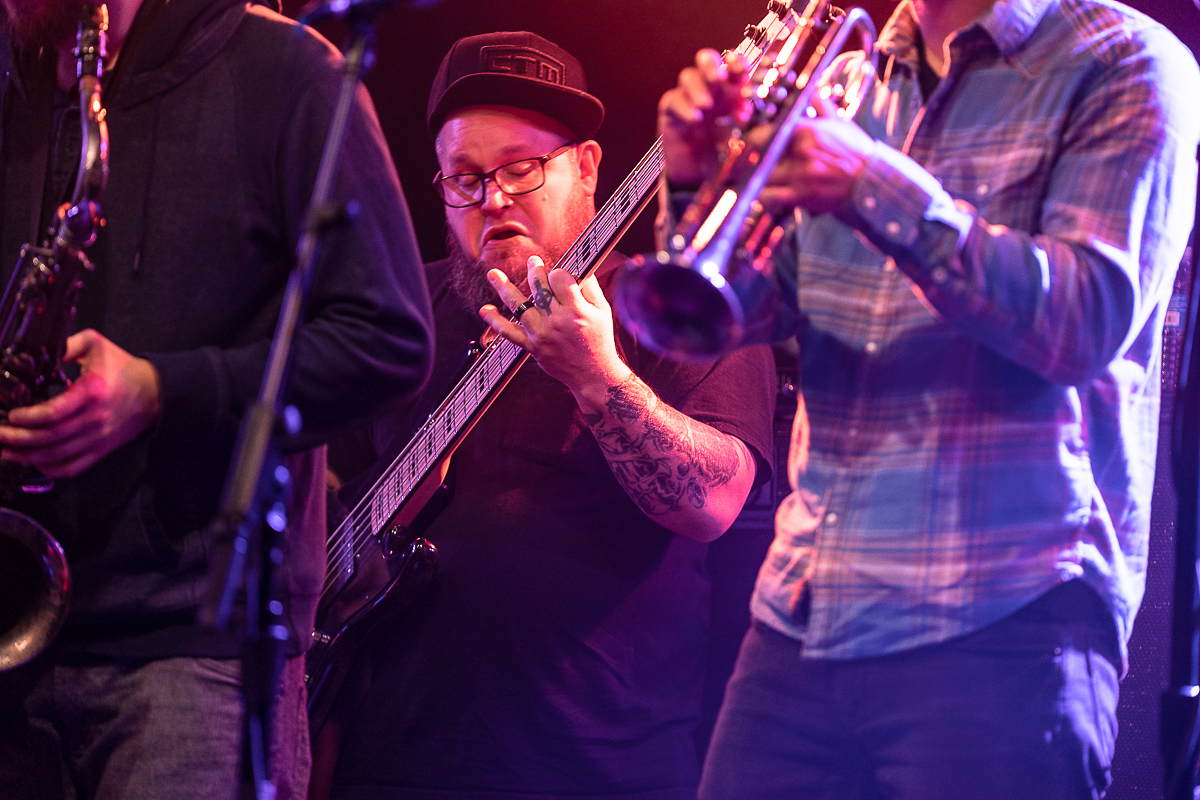
Is there a core to the band or is it tight-knit at this point?
It started off as a trio, but guys kept joining the band. At first, it was Caleb, [drummer Cedric Moore] and I. Actually, Mark Lettieri was our first guitarist and was with up until the first album. It was about that time that Snarky Puppy was really taking off and he wanted to do his solo thing. So Phil came on for the first record. He’s been in ever since and has been an integral part of the band.
We always had a residency, and Ben and Evan started coming and almost accidentally learned our tunes. As I was writing, I wanted to make denser compositions. Caleb only had two hands, so it made sense to bring the horn players in. At first, they were more peripherally in the band. Now they’re just as big a part of the band as anybody is. It’s like, “Shoot, if you’re willing to go and make tens of dollars with me you can have as much say-so as I do.” [laughs]
How did Delicious come about? Is there a background to it or did the songs just amass?
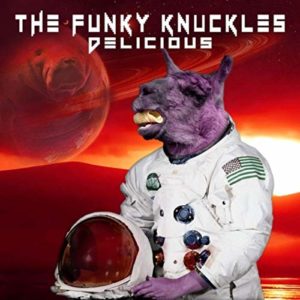 Again, there’s nothing deep to it. Delicious is what some of the guys wanted to name our last album, New Birth. At that time, Caleb didn’t like that name. He’s not in the band anymore so… [laughs] So we named it “Delicious.” It’s been two years since we put out an album and we had a bunch of new songs, so we decided to put them together.
Again, there’s nothing deep to it. Delicious is what some of the guys wanted to name our last album, New Birth. At that time, Caleb didn’t like that name. He’s not in the band anymore so… [laughs] So we named it “Delicious.” It’s been two years since we put out an album and we had a bunch of new songs, so we decided to put them together.
I read that you all write separately and bring the music to the group. Did this album happen the same way?
Yes. Everybody in the band writes music except Ben. I’d love for him to write some music but he just hasn’t done it. It’s not that big of a deal. Basically, someone writes the song and we track it out in Logic or whatever each person uses. Then we send the track to each other and everybody learns the parts off the track. Then we do a rehearsal and start playing it.
In the last couple of years, we’ve been thinking it would be really cool to write a song together. As it is now, each individual writes their songs and we play it.
The songs seem so complex it might be tough to brainstorm on that.
To be honest, some of the songs are not that complex. What we do with them is what makes them difficult. The music itself is mostly not that hard. As long as you know what a Major 7 #5 chord is, you’ll be fine. [laughs]
Do you think of it like a jazz standard where you have a set melody and chords, then you just know what to do with it? Or do you go with more set bass lines?
The answer to that would be yes. There are parts of the songs that are composed and parts that are really loose. In the real loose section, a lot of times the bass line is improvised although some of the loose sections have a static bass line where everyone else can trip out on top. It’s a little bit of everything, it just depends on the composition. Even in the composed parts, there’s always room for people to throw ideas in. There’s always a willingness to see what happens.
I really love your tone. How do you conceptualize it?
I like a stupid amount of bottom end – because I’m a bass player – and I like the low mids because to me that’s what puts the thump in and hits you in the chest. At this point, I approach playing the bass as if I was playing a drum. I need that low-mid range to really hit. I’m not a super tech-head about tone, but I know if I turn that one knob up everything gets punchy. I also do a lot of muting, so I like the top end to add a little bite for articulation. Other than that, that’s as far as I think about it. I’m not trying to emulate anybody, I’m just trying to get what I want out of my bass and my amp.
Obviously we get tone from our hands, but when you’re doing your settings are you thinking of tweaking what’s on your bass or what’s on your amp?
I prefer to not have to fool with the amp. For the longest time, I’ve played active basses just out of convenience. I think I finally found my forever bass. There’s a company called Performance Guitars that’s in L.A. They do a lot of tech work, but they’ve also been making jazz basses for a long time. They don’t cost a million dollars and they’re handmade with their own pickups and preamp. I just love it. It has active and passive, and I’ve started playing it more passive lately. I just got another preamp put in it, but I really love using it both ways.
I didn’t know this because I’ve been playing active basses forever, but with passive, your hands become even more important in your sound. An active bass will color or cover up the way that your fingers make contact with the string. Playing it passive for a while really changed my view on that. It’s cool. Anyway, playing passive is new territory for me.
Do you feel like you’re always exploring to find new things with your sound or do you find what you like and stick with it?
I find what I like and stick with it. I’m kind of like a “set it and leave it” person. The last thing I wanna think about when I’m playing is the tone. As long as it sounds decent enough in the moment, I try not to think about it anymore.

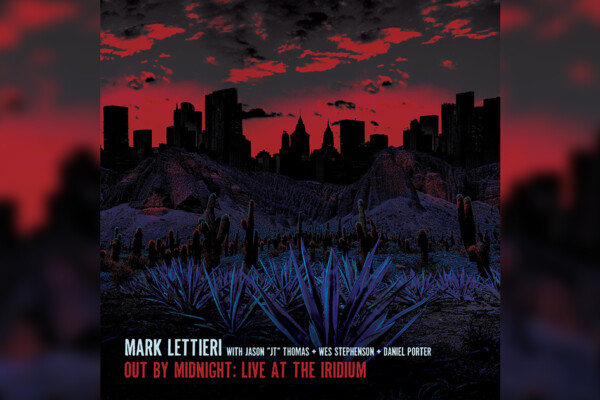
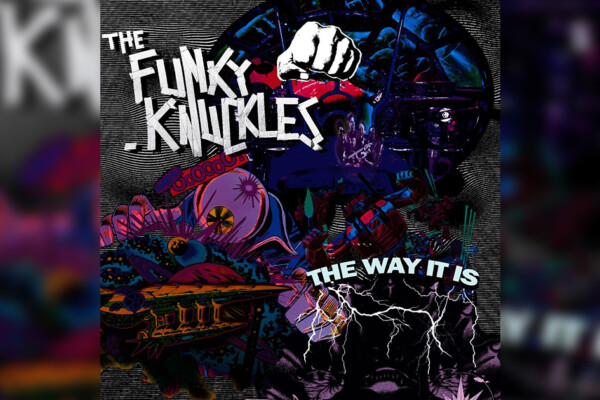
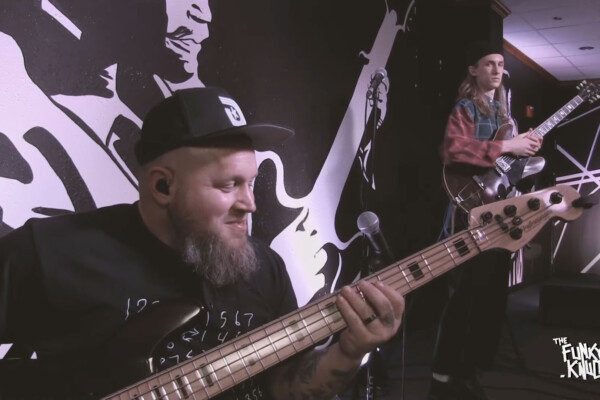
Wes is the dopest…one of my favs
Great interview! Thanks NT! The Funky Knuckles… AAAIIIIGHT now!!